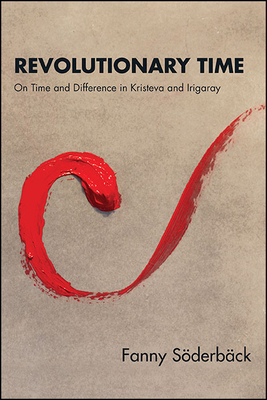Revolutionary Time

Revolutionary Time
This book is the first to examine the relationship between time and sexual difference in the work of Julia Kristeva and Luce Irigaray. Because of their association with reproduction, embodiment, and the survival of the species, women have been confined to the cyclical time of nature--a temporal model that is said to merely repeat itself. Men, on the other hand, have been seen as bearers of linear time and as capable of change and progress. Fanny S derb ck argues that both these temporal models make change impossible because they either repeat or repress the past. The model of time developed here--revolutionary time--aims at returning to and revitalizing the past so as to make possible a dynamic-embodied present and a future pregnant with change. S derb ck stages an unprecedented conversation between Kristeva and Irigaray on issues of both time and difference, and engages thinkers such as Simone de Beauvoir, Jacques Derrida, Sigmund Freud, Judith Butler, Hannah Arendt, and Plato along the way.
This book is the first to examine the relationship between time and sexual difference in the work of Julia Kristeva and Luce Irigaray. Because of their association with reproduction, embodiment, and the survival of the species, women have been confined to the cyclical time of nature-a temporal model that is said to merely repeat itself. Men, on the other hand, have been seen as bearers of linear time and as capable of change and progress. Fanny S derb ck argues that both these temporal models make change impossible because they either repeat or repress the past. The model of time developed here-revolutionary time-aims at returning to and revitalizing the past so as to make possible a dynamic-embodied present and a future pregnant with change. S derb ck stages an unprecedented conversation between Kristeva and Irigaray on issues of both time and difference, and engages thinkers such as Simone de Beauvoir, Jacques Derrida, Sigmund Freud, Judith Butler, Hannah Arendt, and Plato along the way.
This book is the first to examine the relationship between time and sexual difference in the work of Julia Kristeva and Luce Irigaray. Because of their association with reproduction, embodiment, and the survival of the species, women have been confined to the cyclical time of nature-a temporal model that is said to merely repeat itself. Men, on the other hand, have been seen as bearers of linear time and as capable of change and progress. Fanny S derb ck argues that both t
PRP: 249.30 Lei
Acesta este Prețul Recomandat de Producător. Prețul de vânzare al produsului este afișat mai jos.
224.37Lei
224.37Lei
249.30 LeiLivrare in 2-4 saptamani
Descrierea produsului
This book is the first to examine the relationship between time and sexual difference in the work of Julia Kristeva and Luce Irigaray. Because of their association with reproduction, embodiment, and the survival of the species, women have been confined to the cyclical time of nature--a temporal model that is said to merely repeat itself. Men, on the other hand, have been seen as bearers of linear time and as capable of change and progress. Fanny S derb ck argues that both these temporal models make change impossible because they either repeat or repress the past. The model of time developed here--revolutionary time--aims at returning to and revitalizing the past so as to make possible a dynamic-embodied present and a future pregnant with change. S derb ck stages an unprecedented conversation between Kristeva and Irigaray on issues of both time and difference, and engages thinkers such as Simone de Beauvoir, Jacques Derrida, Sigmund Freud, Judith Butler, Hannah Arendt, and Plato along the way.
This book is the first to examine the relationship between time and sexual difference in the work of Julia Kristeva and Luce Irigaray. Because of their association with reproduction, embodiment, and the survival of the species, women have been confined to the cyclical time of nature-a temporal model that is said to merely repeat itself. Men, on the other hand, have been seen as bearers of linear time and as capable of change and progress. Fanny S derb ck argues that both these temporal models make change impossible because they either repeat or repress the past. The model of time developed here-revolutionary time-aims at returning to and revitalizing the past so as to make possible a dynamic-embodied present and a future pregnant with change. S derb ck stages an unprecedented conversation between Kristeva and Irigaray on issues of both time and difference, and engages thinkers such as Simone de Beauvoir, Jacques Derrida, Sigmund Freud, Judith Butler, Hannah Arendt, and Plato along the way.
This book is the first to examine the relationship between time and sexual difference in the work of Julia Kristeva and Luce Irigaray. Because of their association with reproduction, embodiment, and the survival of the species, women have been confined to the cyclical time of nature-a temporal model that is said to merely repeat itself. Men, on the other hand, have been seen as bearers of linear time and as capable of change and progress. Fanny S derb ck argues that both t
Detaliile produsului










